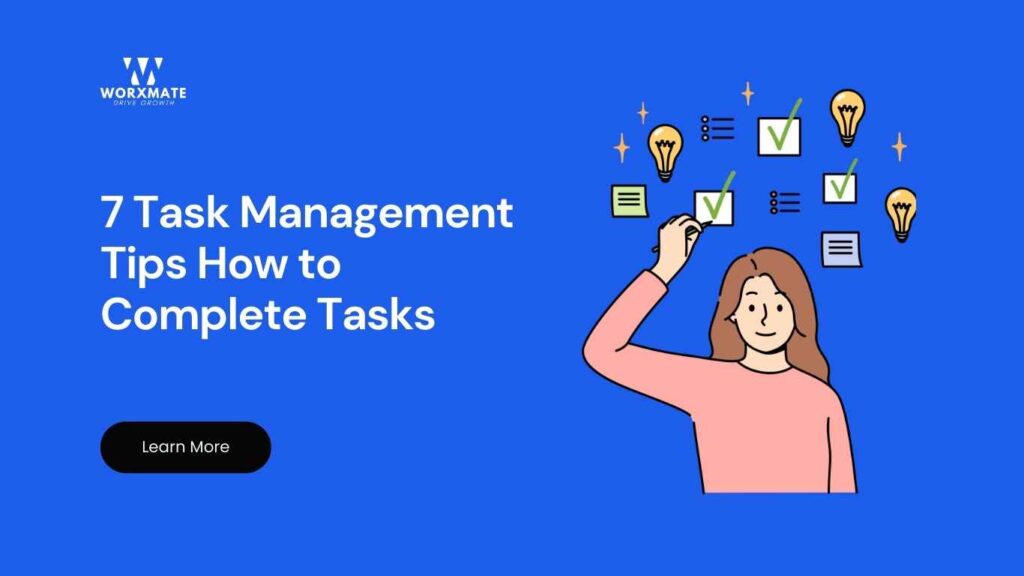Effective task management is the cornerstone of productivity in both personal and professional realms.
With the average professional juggling multiple responsibilities daily, mastering the art of completing tasks efficiently can significantly reduce stress and enhance output.
This article explores seven actionable strategies to optimize task completion, supported by real-world case studies and insights from leading industry research.
By integrating these methods, individuals and teams can transform their workflow, ensuring that every task—whether mundane or complex—is executed with precision and purpose.
Understanding Task Management Fundamentals
Task management transcends mere to-do lists; it involves strategic planning, prioritization, and the judicious use of resources.
At its core, effective task management ensures that objectives align with broader goals, enabling individuals to navigate workloads without succumbing to burnout.
The rise of hybrid work environments has further underscored the need for robust task management systems, as dispersed teams require cohesive strategies to maintain productivity.
The Psychological Impact of Task Completion
Completing tasks triggers the release of dopamine, a neurotransmitter associated with motivation and reward.
This biochemical response reinforces productive behavior, creating a positive feedback loop that encourages consistent performance.
However, poorly managed tasks can lead to cognitive overload, diminishing both efficiency and morale. Structuring tasks into manageable components mitigates this risk, fostering a sustainable workflow.
7 Proven Strategies to Enhance Task Completion
1. Prioritize Ruthlessly with the Eisenhower Matrix
Not all tasks hold equal weight. The Eisenhower Matrix, a quadrant-based prioritization tool, distinguishes urgent tasks from important ones.
Immediate deadlines (urgent and important) demand prompt attention, while long-term goals (important but not urgent) require scheduled focus.
Tasks that are neither urgent nor important should be delegated or eliminated. This method prevents time wastage on low-impact activities, ensuring energy is directed toward high-value objectives.
2. Deconstruct Complex Tasks into Subtasks
Large projects often induce procrastination due to their perceived complexity. Breaking them into smaller, actionable subtasks simplifies execution.
For example, drafting a report becomes outlining, researching, writing, and editing. This approach not only clarifies the path forward but also provides incremental milestones, sustaining momentum and motivation.
3. Implement Time Blocking for Focused Work
Time blocking allocates specific periods to distinct tasks, minimizing multitasking—a known productivity killer.
By dedicating uninterrupted blocks to high-priority work, individuals can achieve deeper focus, reducing the cognitive cost of context switching.
Tools like digital calendars or project management software facilitate this practice, enabling precise scheduling and reminders.
4. Leverage Technology for Automation and Tracking
Modern task management software automate repetitive processes and centralize workflow tracking. Platforms like Worxmate offer features such as progress dashboards, deadline alerts, and collaborative workspaces.
These systems provide visibility into task statuses, helping teams identify bottlenecks and redistribute workloads efficiently. Automation of routine tasks (e.g., email responses or data entry) further frees up time for strategic initiatives.
5. Conduct Daily and Weekly Reviews
Regular reviews ensure alignment with overarching goals. A daily 10-minute review to assess progress and adjust priorities prevents drift, while weekly evaluations identify patterns—such as recurring delays or unproductive habits—that require systemic changes. This reflective practice fosters continuous improvement and accountability.
6. Master the Art of Delegation
Delegation is not a sign of weakness but a strategic necessity. Assigning tasks based on team members’ strengths optimizes efficiency and skill utilization. Clear communication of expectations and deadlines is critical, as is providing the necessary resources for success. Effective delegation empowers teams, cultivates trust, and accelerates task completion.
7. Balance Workloads to Prevent Burnout
Sustainable productivity requires balancing task demands with personal well-being. Overloading schedules leads to diminished returns and burnout. Integrating breaks, setting realistic deadlines, and respecting off-hours ensure sustained performance.
Case Study: Triumph in the Gartner Sacramento Case Competition
A 2022 case study from Gartner’s Sacramento competition illustrates the power of structured task management. A cross-university team faced a complex public-sector digital transformation challenge with a six-day deadline.
By dissecting the project into phases—data synthesis, solution design, and presentation drafting—they systematically addressed each component. Daily stand-ups ensured alignment, while feedback from Gartner mentors refined their approach.
The team’s ability to prioritize high-impact actions and adapt to feedback secured their victory, highlighting the efficacy of methodical task management.
Key Takeaways from the Case Study
- Collaborative Breakdown: Dividing the project into subtasks allowed parallel workstreams without quality loss.
- Iterative Refinement: Regular feedback loops enabled rapid adjustments, aligning outputs with judge expectations.
- Technology Integration: Digital collaboration tools maintained coherence across dispersed team members.
Conclusion
Mastering task management is pivotal in an era defined by information overload and competing priorities.
By adopting strategies like prioritization frameworks, task deconstruction, and technology integration, individuals and teams can elevate their productivity sustainably.
Platforms like Worxmate further simplify this journey, offering tailored solutions that bridge planning and execution. Embrace these practices to transform your approach to tasks, and experience the profound impact of organized, purpose-driven work.
Ready to revolutionize your task management? Explore Worxmate’s Task Management Software today, and take the first step toward seamless productivity. Sign up for a free trial and unlock your team’s full potential.



